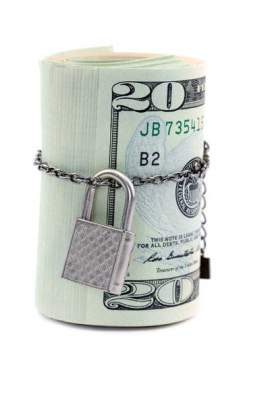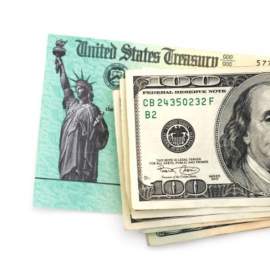
North Carolina Tax

FULL List to North Carolina Tax Forms
Individual Income Tax Forms
Form D-400 Individual Income Tax Return
Form D-400TC Individual Income Tax Return
Corporate Income Tax Forms
Form CD-405 C Corporation Tax Return
Form CD-401S S Corporation Tax Return
Sales Tax Forms
Sales and Use Tax E-Filing Services
Property Tax Forms
Form AV-12 Application for Business Property Tax Exemption
Form AV-10 Property Tax Exemption or Exclusion
Form AV-9 Application for Property Tax Relief
Primary Concerns:
The economic story in North Carolina is really the tale of two economies: rural North Carolina and urban (or suburban) North Carolina. Due to the dismantling of the state's industrial infrastructure, with one in five industrial jobs having been outsourced international to countries such as China. Predominantly amongst these have been the state's textile industry and furniture manufacturing agencies, which have mostly closed down, causing many to lose their jobs. Also, many of the state's agriculture is now been consolidated by corporate concerns, which has drastically cut the number of sole proprietorship farms in the state. All of this has halted and regressed the growth of rural North Carolina, which has seen its population decline with many of those remaining having very low incomes.
Urban North Carolina is an altogether different story, with state capital Charlotte and major cities such as Greensboro and Raleigh seeing dramatic economic growth in their financial and technological sectors, causing an increase in per capita income, rising populations, and a higher standard of living.
The discrepancy has caused levels of taxation to be split dramatically, with property taxes in some suburban areas of North Carolina being double and even triple what they are in some rural areas. North Carolina, like all states, is facing a harsh economic climate, which has threatened the solvency of the state's budget. As a result, the state has incurred some criticism for staggering the rate of return on many refund checks to taxpayers in order to maintain enough liquidity on hand to pay its creditors.
As North Carolina looks towards the future, one of the most pressing problems it will face is how it will managed to better stabilize the imbalance between its under-performing rural sector and over-performing urban sector, hopefully not at the expense of the urban sector's prosperity. Without doing so, North Carolina's ability to maximize its tax revenue to combat its financial problems may prove to be severely hampered.
Income Taxes:
Every individual in North Carolina who earns an income in the state and resides there full or part time is liable for income tax, as is anyone who draws an income from within the state. While North Carolina has very precise tax tables, they are generally based, for single filers, on a progressive rate with staggered rates over a select few brackets.
For individuals making $21,250 or less, their rate is 6%. Between $21,250 and $100,000 the tax is $1,275 plus 7% rate of income over $21,250. Between $100,000 and $200,000 the rate is $6,437 plus 7.75% of excess income over $100,000. Over $200,000 the tax is $14,187 plus 8.25% of excess over the base. Married couples and heads of household have more complex brackets, but most are at the same rates of taxation.
Corporate Income Taxes:
Any business that draws income from or resides within North Carolina is liable for state corporate income tax. Because North Carolina has a large agricultural base, the tax laws are specifically written to include companies who operate agricultural industries in the state but are headquartered elsewhere. The definition of a corporation in North Carolina's terms extends to just about any form of commercial endeavor, including partnerships.
The corporate income tax rate in North Carolina is a flat 6.9%.
North Carolina also has also collected a Corporate Franchise Tax that 0.15% (or $1.50 of every $1000), and is derived from whichever of three income bases of a corporation is the greatest: their capital income, property investment, or 55% of the property value.
Property Taxes:
Property taxes in North Carolina are derived from all form of tangible and intangible property, and includes real property, personal property, and motor vehicle property.
Property tax rates have high variability in North Carolina, with more rural counties have rates as low as 0.2% which more urban areas can have property rates as high as 0.8 to 0.9%.
All property assessments are done on the country level by a county assessor. All real property is assessed at its market value while motor vehicle is valued at its rate of depreciation based on its age against its worth when it was brand new. Personal property is valued based on its replacement value, or how much it would cost to replace the item in question.
Sales Taxes:
The base North Carolina sales tax is 5.75%, with most states adding a 2% surplus sales tax. The state standard is generally 7.75%, though some states have 8% and one county in particular, Mecklenburg, the state's most populous county, has a sales tax of 8.25%.
While unprepared food and prescription drug sales, many counties implement an additional 2 to 3% food tax. The state's cigarette tax, about $0.45 per pack is among the lowest in the nation.
Tax Refund Problems:
In 2010, for the second year in a row, North Carolina's state government staggered their tax refunds to taxpayers due to budget difficulties. By holding on to refund checks the state hopes to have enough cash on hand to handle bill payments through the end of its fiscal year. This has led to some frustration from taxpayers, more and more of whom have begun to use electronic filing software with the benefit of returning refunds more quickly than if they were filed by mail. Now electronic refunds are presently taking a month or more while those who filed paper returns are can expect their tax refund to take over three months. Contact North Carolina lawyers for legal advice and assistance.
NEXT: North Dakota State Tax





















